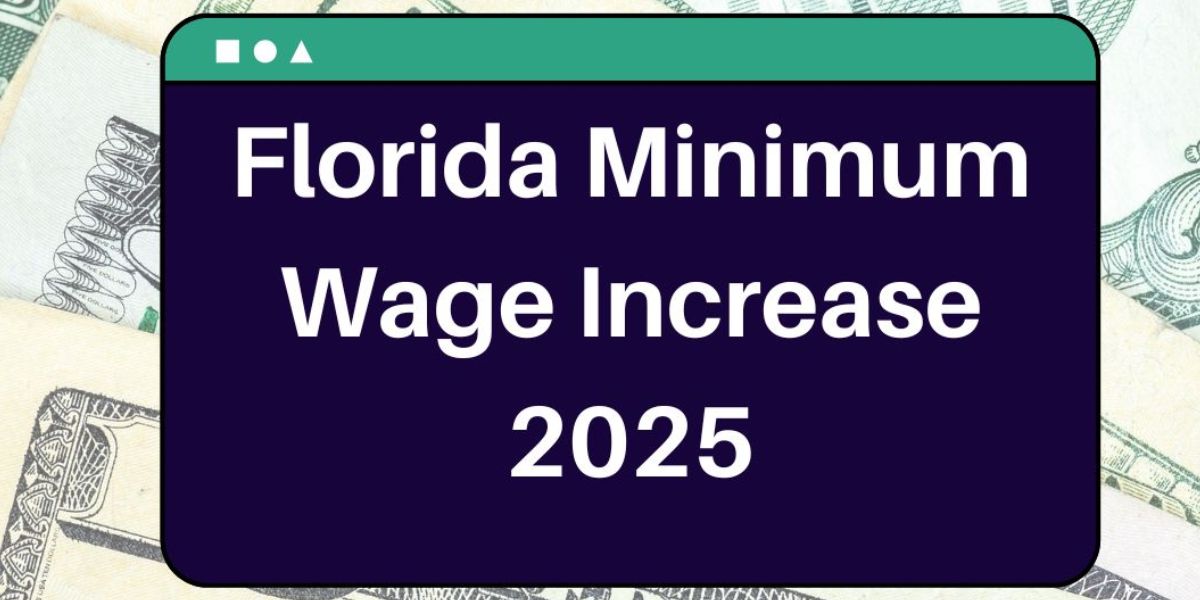RDL – The latest increase in the federal minimum wage occurred 16 years ago this July. The rate of $7.25 per hour was set back in 2009, and despite multiple attempts, it hasn’t changed.
In the meantime, the minimum wage has increased in several places, such as Florida.
In Florida, tipped workers now make $9.98 per hour after the state minimum wage rose from $12 to $13 per hour in September of last year. In 2025, Florida’s minimum wage is expected to increase once again.
When will the minimum wage in Florida increase this year?
Voters in Florida approved a constitutional amendment in November 2020 that would raise the minimum wage annually until it reaches $15 per hour on September 30, 2026.
Another boost this year is part of a series of raises made possible by the enactment of Amendment 2, which was approved by voters and approved by the state legislature.
The minimum wage in Florida will increase to $14 per hour on September 30, 2025, with tipped workers making $10.98 per hour.
The minimum wage in Florida will rise as follows in 2026 and 2027.
By 2026, tipped workers will get $11.98 per hour, while the minimum wage will rise to $15. In order to preserve workers’ purchasing power, the amendment stipulates that future adjustments will be linked to shifts in the Consumer Price Index, even if it calls for one-dollar hikes up to $15 per hour in 2026.
Up to December 31, 2027, the $15 hourly rate will be maintained; beginning in 2028, modifications will be made depending on the Consumer Price Index.
When Florida’s minimum wage hits $15, what happens next?
The amendment’s goal was to bring minimum salaries into line with current living costs. The state will resume using the Consumer Price Index to account for changes in the cost of living once the rate reaches $15.
In Florida, what is a living wage?
A living wage, which is an estimate of what an individual must make per hour to cover essentials like housing, daycare, healthcare, and food in their community, is not the same as the minimum wage.
The Massachusetts Institute of Technology’s (MIT) living wage calculation indicates that, as of February 2024, a single adult without children in Florida would make $22.43 per hour.
The hourly rate is $37.27 for an adult with one child and $45.36 for an adult with two children. The hourly rate increases to $58.76 for parents with three children.
Do all employers have to abide by Florida’s minimum wage laws?
No, employers are permitted to pay lower wages in certain occupations and circumstances that are excluded from the federal minimum wage statute. According to the Department of Labor, these exemptions consist of the following:
Professional, administrative, and executive staff
Salespeople on commission
Farm laborers
Employees at leisure or seasonal businesses
Workers who deliver newspapers
Federal criminal investigators
Unofficial employees, like babysitters
Under some circumstances, minors
Student employees
Workers with disabilities, provided that the employer possesses a Department of Labor certificate that permits it to promote the hiring of staff members at nonprofit or educational institutions that have submitted an exemption application
Workers at businesses with yearly gross incomes under $50,000
What used to be the minimum wage in Florida?
Under the Fair Labor Standards Act (FLSA), which was created in 1938 during the administration of President Franklin D. Roosevelt, Florida’s minimum wage was initially tied to the federal minimum wage.
This regulation reduced the maximum workweek to 44 hours, outlawed abusive child labor, and set the minimum hourly wage at 25 cents.
However, Amendment 5 was approved by Florida voters in 2005, raising the state minimum wage above the federal amount.
Florida has continuously paid minimum wage workers more than the federal minimum since that time.
The hourly wage for non-tipped workers was raised to $6.15 by Amendment 5, which was $1 more than the federal minimum wage at the time.
Additionally, it mandated that the Department of Economic Opportunity use inflation data from the Consumer Price Index for Urban Wage Earners and Clerical Workers for the 12 months preceding September 1 to modify Florida’s state minimum wage every year. Every year on January 1st, these new rates were supposed to go into effect.

